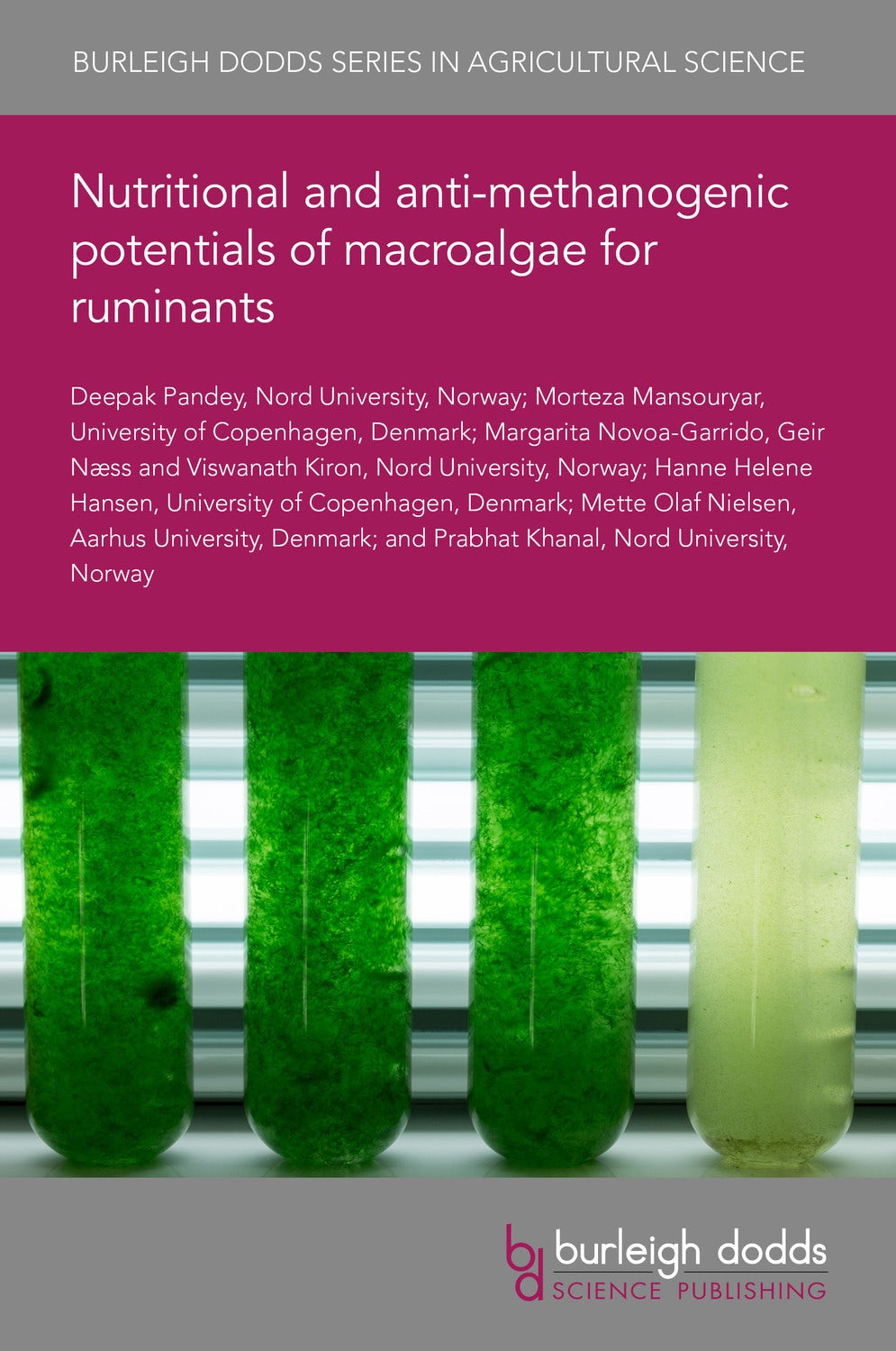We're sorry. An error has occurred
Please cancel or retry.
Nutritional and anti-methanogenic potentials of macroalgae for ruminants
Regular price
£0.01
Sale price
£0.01
Regular price
£0.00
Unit price
/
per
Sale
Sold out
Only -1 units left
The livestock production sector is facing challenges to find alternative feed resources and nutritional strategies to mitigate enteric methane (CH4) emissions from ruminants. Recently, marine macro...
Read More

Some error occured while loading the Quick View. Please close the Quick View and try reloading the page.
Couldn't load pickup availability
- Format:
-
18 January 2021

The livestock production sector is facing challenges to find alternative feed resources and nutritional strategies to mitigate enteric methane (CH4) emissions from ruminants. Recently, marine macroalgae have emerged as potential anti-methanogenic feed ingredients due to their ability to suppress enteric CH4 production in ruminants. The anti-methanogenic properties of macroalgae have been ascribed to the contents of secondary metabolites, such as halogenated compounds e.g., bromoform in red species, and polyphenols or isoprenoids in brown species. These compounds may suppress methanogenesis by inhibiting the growth and activity of methanogens or by altering rumen fermentation pathways and the patterns of volatile fatty acids production. On the other hand, the anti-methanogenic macroalgae, particularly when added to diets in large amounts, are known to reduce animal performance, due to the presence of special and poorly degradable carbohydrates. Thus, finding a proper balance between the abilities to reduce CH4 emissions and sustain animal performance is important.

Price: £0.01
Publisher: Burleigh Dodds Science Publishing
Imprint: Burleigh Dodds Science Publishing
Publication Date:
18 January 2021
ISBN: 9781786768919
Format: eBook




